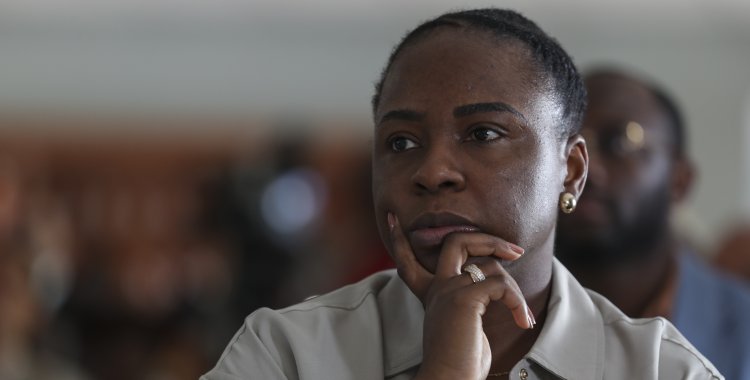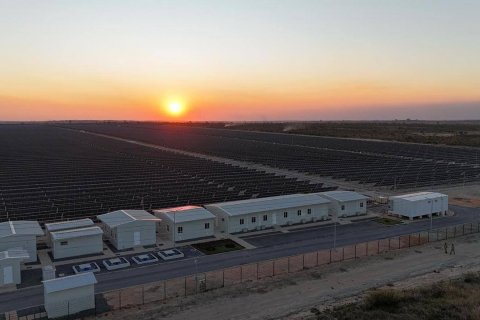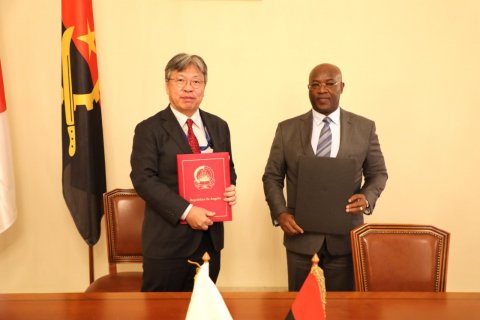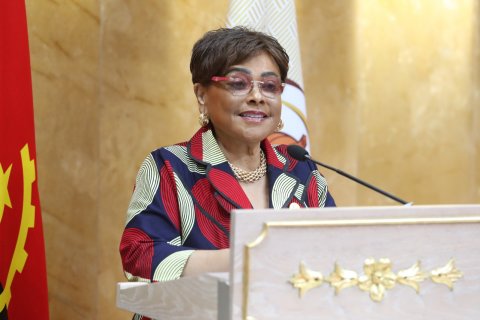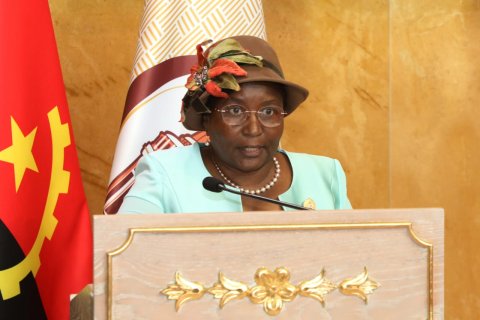"The program with the International Monetary Fund has already ended, Angola is a sovereign country, it understands what the reform needs are that it has to implement, it realizes that the subsidy in the terms it is in is a blind subsidy, which benefits rich and poor indiscriminately, everyone has access to the same benefit in the same way", said Vera Daves de Sousa, in the announcement of the gradual reduction of the gasoline subsidy starting on Friday.
The minister stressed that the Government understood that it needed to "transform a blind subsidy into a targeted subsidy".
"That's why we want, with the tax savings that result from this removal, to allocate more value to Kwenda [monetary transfer program for vulnerable families] to be able to increase the monthly amount, to keep families longer in the program, that's why we want to bet on or protect people who use taxis, motorcycle taxis and gira bairros [taxis inside the bairros], who are the people who actually need protection, not those who have large-capacity cars", she stressed.
The holder of the Finance portfolio said that the Government disbursed with grants 551 billion kwanzas, in 2020, 1.2 billion kwanzas, in 2021, 1.98 billion kwanzas, in 2022, and estimated for this year, without the removal of the gasoline subsidy, 2.03 billion kwanzas.
"Since we are not dealing with the product that has more weight which is diesel, we are only dealing with gasoline, whose weight is around 40 percent of the total weight of subsidies and since we are not doing total removal either, we are doing a partial removal - there will still be costs with the gasoline subsidy - we would be talking about savings that would be close to 400 billion kwanzas", she stressed.
The minister said that Sonangol, a state-owned oil company, has not paid taxes to the State for some years, with accounting adjustments being made to cover the Government's debt.
"So, we say, okay, we owe you that amount for the subsidies and you owe us that amount for the taxes. So let's compensate, it stays for it and there are no cash flows. Accounting is right, from the point of view of treasury does not stay, Sonangol continues in a precarious treasury situation", she stressed.
"By reducing this 'gap' and thus being able to reduce the State's commitment to Sonangol, due to the amount of subsidies it would have to pay, it is expected that Sonangol and all other distributors that exist in the market will start to have normal revenue, start to pay their taxes in the normal way," she added.
Vera Daves de Sousa ruled out possible price speculation or rise in food prices, given the fact that there has been no change in the price of diesel, "which touches not only via freight, but also via energy costs".
"We still have a lot of provinces and municipalities using energy from thermoelectric power stations that run on diesel, so the cost of energy could increase, and if energy costs increased, industries, farms, would reflect prices on their products and services and in some cases food products", she underlined.
The official highlighted that mitigation measures for this segment and to avoid possible price speculation have not yet been fully thought out, hence the decision "not to change, precisely to protect food goods and the basic basket".
"Will there still be those who take advantage? Yes, there always is, unfortunately, but for that we want to maintain a permanent dialogue with the associations, with the large distributors and we have the support of the Ministry of Industry and Commerce, the National Authority for Economic Inspection and Security (ANIESA) and all public institutions and civil society in general", pointed out.
The Government announced an increase in the price of gasoline, in light of the gradual reduction in fuel subsidies, from 160 kwanzas per liter to 300 kwanzas per liter as of Friday.

